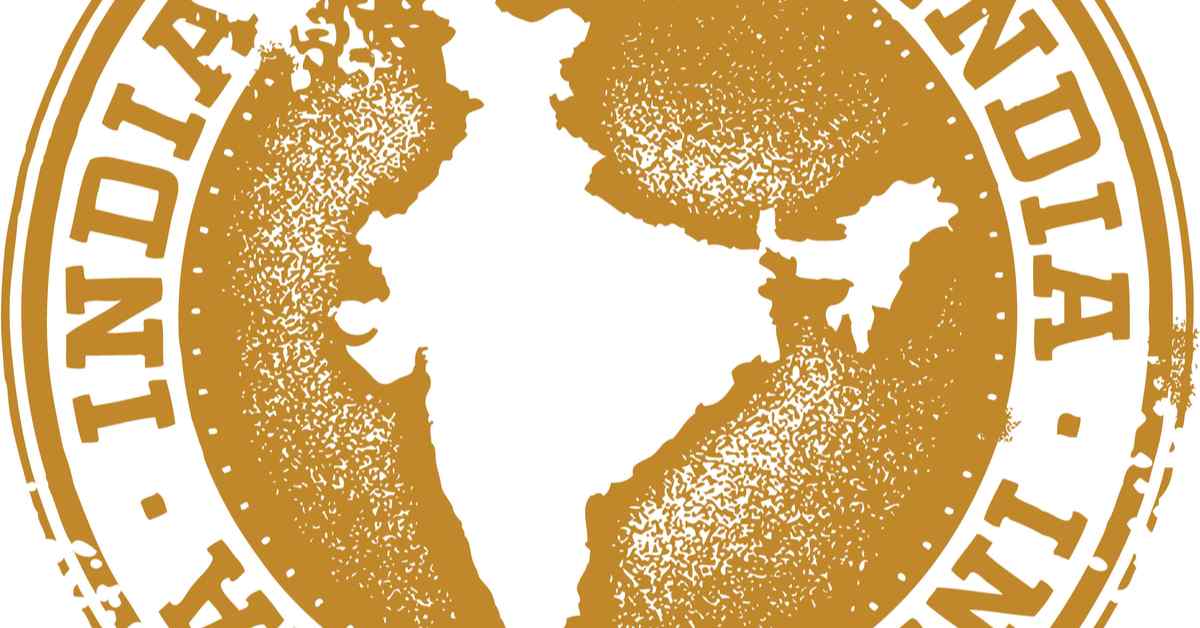Table of Contents
Quality Service Guarantee Or Painting Free

Get a rental agreement with doorstep delivery

Find the BEST deals and get unbelievable DISCOUNTS directly from builders!

5-Star rated painters, premium paints and services at the BEST PRICES!
Loved what you read? Share it with others!

Demystifying the Adjudication Process in India: Understanding its Significance and Implementation
Table of Contents
Adjudication is a crucial legal process that plays a significant role in resolving disputes and ensuring the validity of important documents in India. Whether you are an Indian property owner, a non-resident Indian (NRI) seeking to manage your legal matters remotely, or an individual involved in a legal dispute, understanding the adjudication process is essential.
In this comprehensive guide, we will delve into the meaning, components, and legal essentials of the adjudication process in India. By the end, you will have a clear understanding of how adjudication works, its importance, and the timeline for completion.
What is Adjudication?
Adjudication is a legal process used to resolve disputes and determine the legality of documents. It serves as an alternative to lengthy court proceedings, offering a quicker and more efficient method of resolving conflicts.
Quality Service Guarantee Or Painting Free

Get a rental agreement with doorstep delivery

Find the BEST deals and get unbelievable DISCOUNTS directly from builders!

5-Star rated painters, premium paints and services at the BEST PRICES!
Legal Definition of Adjudication
The best legal definition of adjudication in India is the one given by the Supreme Court of India in the case of State of Punjab v. Satya Pal, AIR 1969 SC 1303.
"Adjudication is the process by which a court of law or an administrative tribunal determines their rights and liabilities after hearing the parties concerned. It is a judicial process, and the tribunal or court is bound by the law.
It is distinguished from arbitration, which is a form of alternative dispute resolution in which the parties agree to have their dispute resolved by a neutral third party who is not bound by the law."
In India, adjudication holds great significance, as it helps maintain the integrity of legal documents, such as property agreements, power of attorney (POA) documents, and more.
By subjecting these documents to adjudication, their authenticity and compliance with legal requirements can be verified.
What is the Adjudication Process?
The adjudication process involves several stages that ensure a thorough review and assessment of the submitted documents. Let's explore the step-by-step guide to the adjudication process in India–
Step 1: Document Submission
The process begins with the submission of relevant documents to the appropriate adjudication authority.
These documents can include property agreements, POA documents, or any other legal instruments that require adjudication. It is important to ensure that the documents are complete and comply with the necessary legal provisions.
Step 2: Document Examination
Once the documents are submitted, they undergo a comprehensive examination. Adjudicators review the documents to ascertain their legality, authenticity, and compliance with stamp duty requirements. This stage ensures that the documents meet all the legal prerequisites for adjudication.
Step 3: Dispute Resolution and Decision Making
In cases where disputes arise during the adjudication process, the concerned adjudication authority plays a vital role in resolving them. The authority reviews the arguments and evidence presented by the parties involved and makes a fair and unbiased decision.
This decision is based on the applicable laws and regulations governing the adjudication process.
Step 4: Issuance of Adjudication Certificate
Upon successful completion of the adjudication process, an adjudication certificate is issued. This certificate serves as proof that the document has undergone adjudication and is legally valid.
The certificate is a crucial document that substantiates the authenticity and compliance of the adjudicated document.
What is Adjudication of Stamp Duty?
One aspect of the adjudication process involves the adjudication of stamp duty.
Stamp duty is a tax levied on certain legal documents to make them legally enforceable.
Adjudication of stamp duty involves determining the appropriate amount of stamp duty payable on a particular document. This process ensures that the document is duly stamped as per the prevailing stamp duty laws.
Adjudication of stamp duty is essential to avoid legal complications and ensure the enforceability of the document in question.
What is an Adjudication of Power of Attorney?
Power of Attorney (POA) is a legal document that grants an individual the authority to act on behalf of another person in legal matters. Adjudication of POA is the process of verifying the authenticity and legality of such documents.
NRIs, in particular, often require adjudication of POA documents to manage their legal affairs in India effectively. Adjudication ensures that POA documents are valid and legally binding.
What Types of Documents Can be Adjudicated Upon?
The scope of adjudication extends to various types of legal documents. Some common examples include property agreements, sale deeds, lease agreements, partnership deeds, mortgage deeds, and affidavits. By subjecting these documents to adjudication, individuals can ensure their legality and compliance with applicable laws.
What is the Maximum Timeline for the Adjudication Process?
The timeline for completing the adjudication process varies depending on several factors, including the complexity of the case, the workload of the adjudication authority, and the availability of supporting documents.
Generally, the process takes approximately 30 to 45 days. However, it is essential to note that this timeline can be subject to change based on the specific circumstances of each case.
Adjudication of the Power of Attorney (POA)
In real estate transactions, a Power of Attorney (POA) is an individual authorised to act on behalf of another person in legal matters, such as property purchases or management. The Power of Attorney plays a crucial role in facilitating smooth property transactions and legal processes for property owners, including non-resident Indians (NRIs).
Adjudication of the Power of Attorney refers to the process of verifying and validating the document's authenticity and compliance with legal requirements. Through adjudication, the POA document undergoes a thorough review by the appropriate authority to ensure its validity, legality, and adherence to stamp duty provisions and other legal regulations.
The process of adjudicating a Power of Attorney involves several steps. process as explained earlier in the blog, involving document submission, examination, verification, and the issuance of an adjudication certificate. However, POA adjudication validates the granted authority and compliance with stamp duty provisions, distinguishing it within the broader adjudication process.
The process of adjudicating a Power of Attorney (POA) in India can be outlined as follows:
- Submission of Documents: The POA document and the necessary supporting documents are submitted to the appropriate adjudication authority.
- Document Examination: Trained adjudicators carefully examine the submitted documents, verifying their completeness, authenticity, and compliance with stamp duty requirements and other legal provisions.
- Verification of Signatures and Details: The signatures of the grantor and the attorney-in-fact are scrutinised to ensure their authenticity and adherence to legal requirements. Additionally, the details mentioned in the POA document, such as property details or specific powers granted, are thoroughly reviewed.
- Compliance with Stamp Duty: The adjudication authority ensures that the necessary stamp duty payments have been made at the applicable rates and regulations.
- Review of Legal Provisions: The POA document is checked for compliance with relevant legal provisions, such as those related to property transactions, powers granted, and any specific requirements outlined in the law.
- Decision and Issuance of Certificate: Based on the examination and verification process, a determination is made regarding the validity and authentication of the POA document. Upon successful adjudication, an adjudication certificate is issued, confirming the document's authenticity and compliance.
How Many Types of Disputes can be Resolved Through Adjudication?
The adjudication process is designed to address a wide range of disputes and legal issues. It provides an effective mechanism for resolving conflicts related to property rights, contractual disputes, and other matters governed by relevant laws.
Some common disputes that can be resolved through adjudication include disputes over property ownership, breach of contract, and disputes related to the interpretation of legal documents.
Understanding the adjudication process in India is vital for property owners, NRIs, and individuals involved in legal disputes.
Adjudication ensures the validity and legality of documents, resolves disputes efficiently, and provides a strong legal foundation for various transactions.
By familiarising yourself with the process, you can navigate the complexities of adjudication and ensure a smooth and legally compliant experience. Stay informed, protect your legal rights, and make informed decisions by embracing the significance of the adjudication process in India.
Frequently Asked Question
A1: No, the adjudication of a POA document must be done within India as it ensures compliance with stamp duty requirements and legal validity within the country's jurisdiction.
A2: Failing to adjudicate a POA document can lead to legal complications, including the document being deemed invalid or unenforceable. Adjudication provides legal recognition and protection for all parties involved.
A3: The timeline for adjudication can vary, but on average, it takes around 30 to 45 days to complete the process. Factors such as document complexity and the workload of the adjudication authority can influence the duration.
A4: Yes, an adjudicated POA document is valid and can be used for property transactions across different Indian states, provided it meets the specific requirements of the respective state's laws and regulations.
A5: Yes, a POA document can be adjudicated after execution, provided it has not been registered or used for any transaction. Adjudication ensures the document's validity and compliance with legal requirements, even if it is done retrospectively.
Recommended Reading

Franking Charges Explained: Meaning and Benefits
January 31, 2025
1115346+ views

Society Maintenance Charges : Meaning, Cost, Types and Calculation
January 31, 2025
193167+ views

Revenue Stamp in India: Meaning, Types, Uses, Legal Value & Where to Buy in 2025
January 31, 2025
127520+ views

What are Society Transfer Charges as per the Housing Act and Rules in 2026?
January 31, 2025
82269+ views

What is the Difference Between Movable and Immovable Property?
May 1, 2025
70815+ views
Loved what you read? Share it with others!
Most Viewed Articles

Franking Charges Explained: Meaning and Benefits
January 31, 2025
1115346+ views

Society Maintenance Charges : Meaning, Cost, Types and Calculation
January 31, 2025
193167+ views

BBMP E-Khata Registration process for property owners in Bangalore, Karnataka in 2025
March 19, 2025
145603+ views

Daughter's Right in Fathers' Property - the Law is Finally Equal for both Genders?
June 1, 2025
132557+ views

Rectification Deed Format and Process in India 2025
June 1, 2025
127854+ views
Recent blogs in
How To Register a Rent Agreement Online In Gujarat: Process, Documents and Fees in 2026
January 19, 2026 by Ananth
What is Registered Lease Agreement: Meaning, Legal Validity, Benefits and Online Registration
January 19, 2026 by Krishnanunni H M
What Is a Room Rental Agreement: Meaning, Purpose and Importance in 2026
January 12, 2026 by Kruthi









 Full RM + FRM support
Full RM + FRM support
Join the conversation!